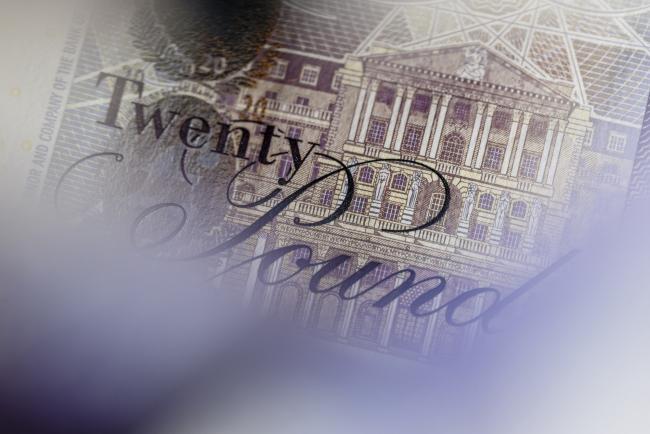(Bloomberg) -- It’s back to the drawing board for pound bulls.
Money markets have slashed bets on the Bank of England raising borrowing costs when it meets in two weeks, with the odds for an increase collapsing to 20 percent from above 50 percent on Thursday. That led the pound to fall 1.2 percent, with MUFG and Mizuho Bank Ltd. planning to cut their sterling forecasts after expecting a continued rally this year.
Sterling investors were primed for disappointment after a run of soft economic data and words of caution from BOE Governor Mark Carney last week, yet Friday’s 0.1 percent growth figure for the first quarter was below all survey estimates. The pound’s drop this week has taken the shine off a rally in 2018 based on reduced Brexit concerns and expectations for continued monetary policy tightening.
“May is likely off the agenda now for the Bank of England,” said Neil Jones, head of hedge fund sales at Mizuho. “The pound is selling off hard. A 0.1 percent reading that goes beyond the bad weather suggests the slowdown is more structural.”
Jones, who had expected the pound to climb to $1.45 this year, said it should trade down to the $1.35 area now. Lee Hardman, a strategist at MUFG who saw the pound at $1.44 by the end of the second quarter, said the bank’s forecast will be lowered in an update next week.
The pound fell 1.2 percent to an eight-week low of $1.3757. Any break of early March lows at $1.3712 would be significant on a technical basis, according to Ned Rumpeltin, the European head of foreign-exchange strategy at TD Bank. Gilts rallied, with the yieldon 10-year government bonds falling five basis points to 1.45 percent.
Money markets have pushed back full pricing for the next BOE interest-rate hike to December. Traders will next be watching comments from Carney and fellow BOE policy maker Andy Haldane, both due to speak later on Friday, ahead of the bank’s May 10 meeting.
“It is difficult to hold on to a May hike after the scale of weakness in the GDP report even if we doubt that it is a true reflection of the underlying health of the economy,” said Hardman. “As we can see already, it has killed the pound’s upward momentum in the near-term. On top of that the latest Brexit developments over the Irish border and customs unions have become less supportive for the pound.”
